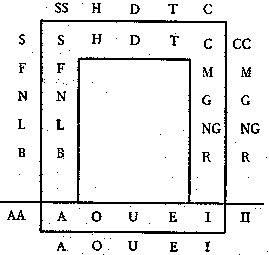129. Next station for Mars should
be December 6 AD 2022:
|
 |
|
Dec 6 |
340 = 235 +
105 |
*260 |
5h (*76) |
APRIL 2 (92 ↔
76 + 16) |
|
Nov 6 |
310 = 235 +
75 |
*230 |
HEAVENLY
GATE (*84.0
↔
100 - 16) |
APRIL 10 (100 ↔ 84 + 16) |
|
Oct 7 |
280 = 235 +
45 |
*200 |
ELNATH &
BELLATRIX (*80
↔
96 - 16) |
APRIL 6 (280
- 184 = 96. *381) |
|
Sept 7 |
250 = 235 +
15 |
*170 |
ALDEBARAN (*68) |
MARCH 25 (250 - 166 = 84,
*369) |
|
Aug 23 |
235 |
*155 |
λ & ν Tauri
(*59) |
MARCH 16 (235
- 160 = 75,
*360) |
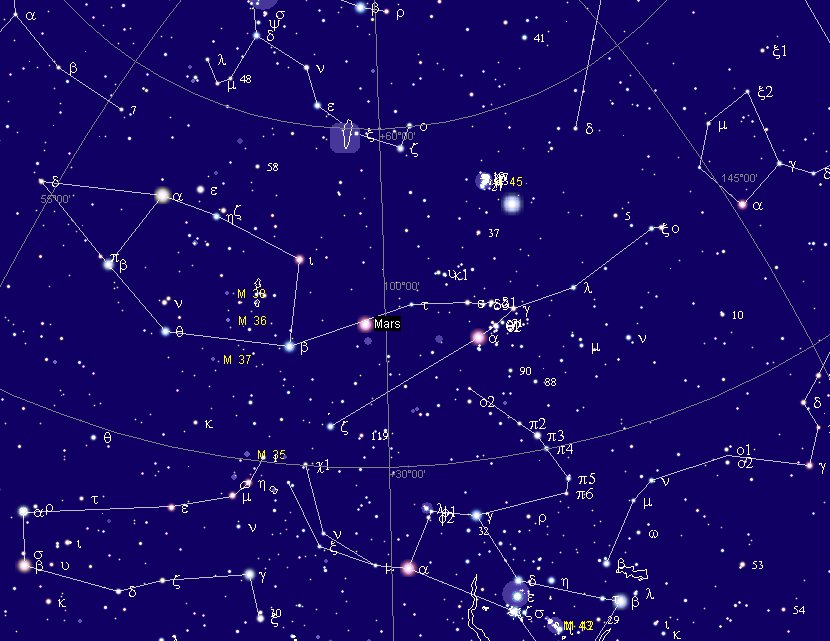
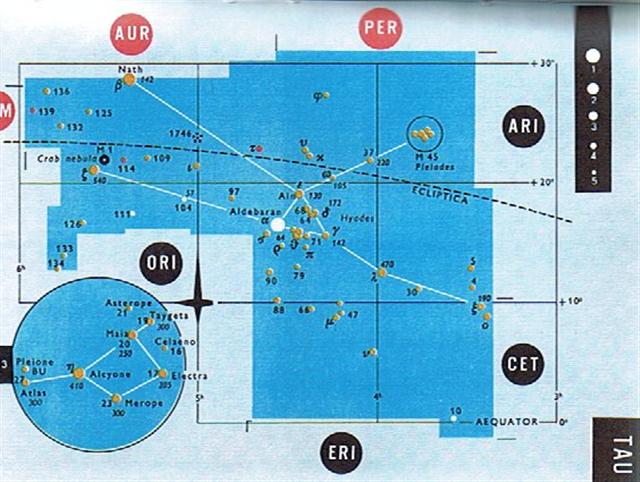
|
Mars |
J2000 RA:
4h58m09.40s |
*74.0 |
|
ι Tauri |
J2000 RA:
5h03m05.70s |
*75.2 |
|
ζ Tauri |
J2000 RA:
5h37m38.70s |
*84.0 |
|
34m33.00s
/ 1440 * 365.25 = 8.763
04m56.3s
/ 1440 * 365.25 = 1.253 |
|
MARCH 31
(90, 455, '10) |
APRIL 1 |
2 (80 + 12) |
3 (93) |
 |
 |
 |
 |
|
Ga1-10 |
Ga1-11 |
Ga1-12 |
Ga1-13 ↔ 378
- 365 |
 |
 |
 |
 |
|
Gb5-22 (146
→
2 * 73) |
Gb5-23 |
Gb5-24 (92 +
365 - 80 = 377) |
Gb5-25 (378 → Saturn) |
|
ALMAAZ (The Male Goat) = ε
Aurigae
(74.7),
HAEDUS I =
ζ
Aurigae
(74.8)
Dec 6
AD 2022 (340, *260)
MARS |
HAEDUS II = η Aurigae
(75.9)
Aug 14 AD 2024 (226, *146)
MARS & JUPITER |
5h (*76.1)
ε
Leporis (76.0),
ι Tauri
(76.2),
CURSA
(Footstool) = β Eridani (76.4),
λ
Eridani (76.7),
Ψ (65) Eridani (76.8)
*35.0 = *76.4 - *41.4 |
μ Aurigae, μ Leporis (77.6) |
 |
|
June 3 |
4 (*75) |
5 (40 + 4 *
29) |
6 (157 ↔ 314
/ 2) |
|
°May 30
(150) |
31 |
°June 1 (*72) |
2 (153) |
|
'May 7 |
8 (128) |
9 (*414 ↔ *49
+ *365) |
10 (*50 ↔ *77
- *27) |
|
"April 23 |
24 (*399) |
25 (115 = 156 - 41) |
26 (*36 = *77
- *41) |
|
... Later
on in this series of
rituals, the Chorti
go through a ceremony they
call raising the sky. This
ritual takes place at
midnight on the twenty-fifth
of April and continues each
night until the rains
arrive. In this ceremony two
diviners and their wives sit
on benches so that they
occupy the corner positions
of the cosmic square. They
take their seats in the same
order as the stones were
placed, with the men on the
eastern side and the women
on the west. The ritual
actions of sitting down and
lifting upward are done with
great precision and care,
because they are directly
related to the actions done
by the gods at Creation. The
people represent the gods of
the four corners and the
clouds that cover the earth.
As they rise from their
seats, they metaphorically
lift the sky. If their
lifting motion is
uneven,
the rains will be irregular
and harmful ...
Ariki 1. King,
ruler, member of the
nobility, Ariki
henua, king; members
of the royal family,
descending from Hotu
Matu'a; noble,
nobility, chief. 2.
Divine being, superior
being. Ariki Paka,
certain collateral
descendents of Hotu
Matu'a, who
exercised religious
functions. Vanaga.
Chief, king, lord,
headman in general.
Hakaariki, to make
one a king. P Pau.,
Mgv.: ariki,
chief. Mq.: aiki,
id. Ta.: arii,
id. The Marquesan use
both aiki and
hakaiki in the same
sense; the latter forms
with Mangarevan
akariki a
subordinate couple in
Southeast Polynesia.
Since akariki is
the only form in
Mangareva and the
Marquesas have both we
may regard this as
indicative of the
influence of Mangareva
upon the Marquesas. In
Tonga we find only
eiki; the vowel
change is quite in the
Tongan manner, the
dropping of the liquid
is most unusual; the
eiki form appears
once more in Mangarevan
ataeiki (also a
language in which it is
unusual to drop the
liquid) in the sense 'to
do nothing and to dress
richly in a luxurious
way'. Churchill.
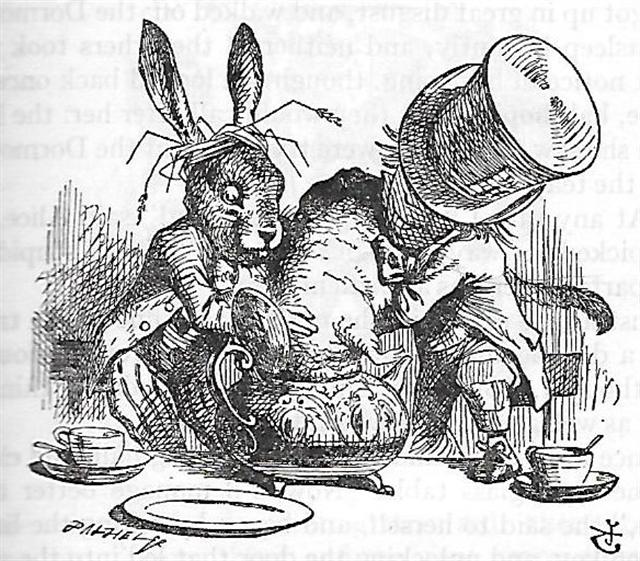
...
The Mahabharata
insists on six as
the number of the
Pleiades as well as of
the mothers of Skanda
and gives a very broad
and wild description of
the birth and the
installation of
Kartikeya 'by the
assembled gods ... as
their generalissimo',
which is shattering,
somehow, driving home
how little one
understands as yet. The
least which can be said,
assuredly: Mars was
'installed' during a
more or less close
conjunction of all
planets; in Mbh. 9.45
(p. 133) it is stressed
that the powerful gods
assembled 'all poured
water upon Skanda,
even as the gods had
poured water on the head
of Varuna, the
lord of waters, for
investing him with
dominion'. And this
'investiture' took place
at the beginning of the
Krita Yuga, the
Golden Age ...
|
|
THE NAKSHATRA VIEW: |
|
SEPT 29 |
30
(273 = 3 * 91) |
OCT 1 |
2
(*195) |
|
κ Ophiuchi (256.2), ζ Arae (256.5), ε Arae
(256.8),
CUJAM (Club) = ε Herculi
(256.9) |
No star listed (257) |
17h (*258.7)
ARRAKIS =
μ
Draconis
(258.7) |
Mula-19 (The Root)
SABIK (The Preceding One) =
η
Ophiuchi
(259.7),
η
Scorpii
(259.9) |
|
Dec 2 (336 ↔
4 * 84) |
3 |
4 |
5
(*259) |
|
°Nov 28 (332) |
29 |
30
(*254) |
°Dec 1 |
|
'Nov 5 |
6
(*230) |
7
(311) |
8 |
|
"Oct 22 (295) |
23
(*216) |
24 |
25 |
 |
 |
 |
 |
|
Ga7-23 (192) |
Ga7-24 |
Ga7-25 |
Ga7-26 |

(Weeping Willow)
|
1 |
B |
Beth
|
Birch |
|
2 |
L |
Luis |
Rowan |
|
3 |
N |
Nion |
Ash |
|
4 |
F |
Fearn |
Alder |
|
5 |
S |
Saille |
Willow |
|
6 |
H |
Uath |
Hawthorn |
|
7 |
D |
Duir |
Oak |
|
8 |
T |
Tinne |
Holly |
|
9 |
C |
Coll |
Hazel |
|
10 |
M |
Muin |
Vine |
|
11 |
G |
Gort |
Ivy |
|
12 |
P |
Pethboc |
Dwarf Elder |
|
13 |
R |
Ruis |
Elder |
|
14 |
A |
Ailm |
Silver Fir |
|
15 |
O |
Onn |
Furze |
|
16 |
U |
Ur |
Heather |
|
17 |
E |
Eadha |
White Poplar |
|
18 |
I |
Idho |
Yew |
... What is this cry which our
primitive islanders share with the animals? Look at its
elements, all full-throated. First we have a, the sound
of mouth open, fauces open, lungs full of air. As air expires
the sound recedes in the mouth towards the palate and we find
the u. Last comes the conscious finish of the utterance,
the muscles begin to retract, the sound-making point is forced
forward and the sound is e. If the man had but a few more
cubic centimeters of lung capacity he could attain cow volumne
for his cry, or interjection, since it amounts to the same
thing ...
|
In the Swedish language the corresponding tree is named 'sälg'.
It has healing properties →
salycilic acid.
... Perhaps it is the
ancient importance of this Dog on the Nile that has
given the popular name, the
Egyptian X, to the figure formed by the stars
Procyon and Betelgeuze, Naos and
Phaet, with Sirius at the vertices of the two
triangles and the centre of the letter ...
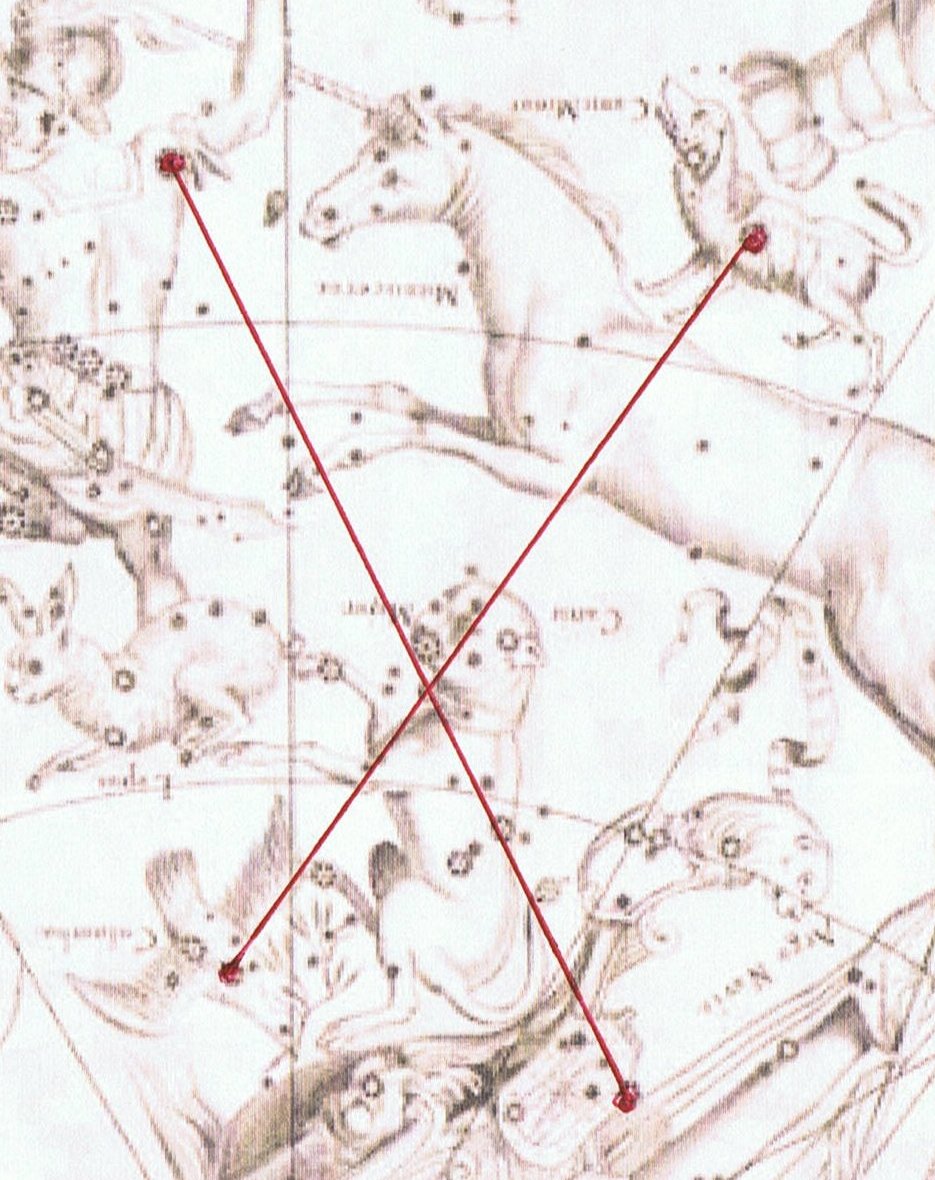
... Atea then became the wife of
Rua-tupua-nui, Source of Great Growth, and they became the
parents of all the celestial beings, first the shooting stars,
then the Moon and the Sun, next the comets, then the multitude
of stars and constellations, and finally the bright and dark
nebulae. When this tremendous task had been accomplished Atea
took a third husband, Fa'a-hotu, Make Fruitful. Then
occurred a curious event. Whether Atea had wearied of
bringing forth offspring we are not told, but certain it is that
Atea and her husband Fa'a-hotu
exchanged sexes. Then the
eyes of Atea glanced down at those of his wife Hotu
and they begat Ru. It was this Ru who explored the
whole earth and divided it into north, south, east, and west
...
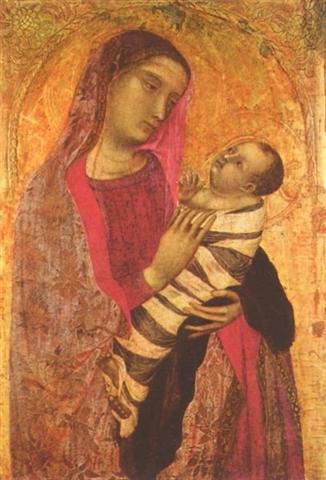
|










